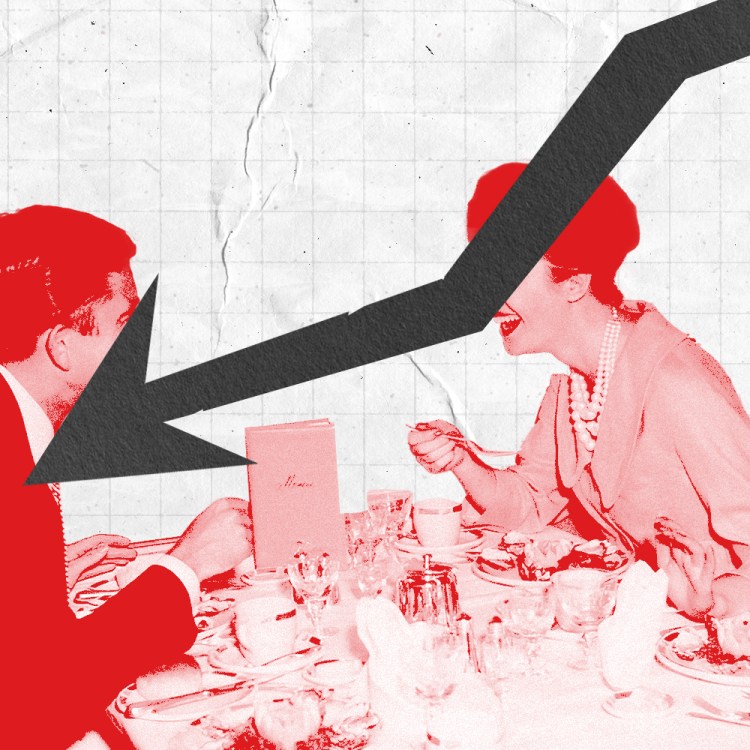The first time I made it to Europe, 15 years ago, I briefly met a gentleman in a jewelry shop near Mt. Vesuvius. He was the local watchmaker.
I remember watching him hunched over his desk, choosing microscopic tools and gears from a mess that likely made sense only to him. He broke his flow state to greet us for a few moments, clearly proud to be something of interest in a part of the world famous for attractions, before turning his attention back to the task at hand.
Somehow, that memory has hung in there with some of my top experiences from that trip, a fact that I attribute to the watchmaker’s remarkable age. He had worked that job for 60 years, and judging by his profile, was in his mid-eighties. But his dexterity and awareness were equally impressive; he held the tiny parts with concentration and care, and he seemed enraptured by his work.
I thought of that watchmaker when a woman named Kane Tanaka passed away at the age of 119, and again, after a 100-year-old man named Walter Orthmann set the Guinness World Record for the longest tenure at the same company.
Tanaka was the second-oldest verified human being to ever live, and according to her much-publicized obituary, worked at an udon noodle shop until the age of 103. For his part, Orthmann started as a shipping assistant at Brazil’s Industrias Renaux S.A., a textile mill, at the age of 16. The company is now called ReneauxView, and he remained on the job as a sales manager until 2022, before dying in August 2024. According to Guinness, Orthmann collected his paychecks in “nine different currency denominations” over 84 years of work.
The American Retirement Myth
As fascinating as these stories are, we’re also trained to find them somewhat…sad. Who the hell wants to work that long? Built into the core of the American professional experience is a desire to exit the workforce as soon as possible. It’s a sort of promise: retirement budgets and planning services cater to the concept that once you’re retired, your life can finally begin. Assuming you’ve been prudent and saved enough, you can finally start playing tennis, taking cooking classes and watching sunsets from tubs like you’re in a Cialis commercial.
There’s even a community online of so-called FIRE (which stands for Financial Independence, Retire Early) people who scrutinize every expenditure in life against the ledger of early retirement. The movement has different models — Fat FIRE refers to a high-earner who employs investment strategies to retire early, while Barista FIRE describes someone who uses part-time work and savings to accomplish it — but the thesis is clear throughout. Work is horrible, we shouldn’t have to do it, and the sooner I can stop doing it I will be a happier, healthier person.
FIRE people specifically turn their noses at the concept of 65 as an unofficial, boilerplate “retirement age.” They consider it way too old, which makes one wonder what they’d think of how Tanaka and Orthmann have spent their lives. They’ve wasted them, right? But can anyone really say that any centenarian — let alone supercentenarian — has wasted his or her life?
Both Tanaka and Orthmann are extreme examples of a phenomenon I saw with my own eyes in Italy, all those years ago. Work, it would appear, doesn’t necessarily have to make us weaker, frailer, less interesting or more senile. Instead of an albatross, it can actually be an advantage, which imbues life with a critical sense of purpose during years that too often feel directionless and lonely.
The Dutch Experiment
After a temporary tax policy change gave Dutch men between the ages of 62 and 65 an incentive to remain longer in the labor force, researchers discovered that the men who did stay ended up, on average, adding two months to their lives. Life-changing? At first glance, perhaps not — but the authors who observed the “natural experiment” concluded that “the improvement could be more substantial if the impact is longer lasting.”
How could that be? Well, the mental and physical health concerns associated with retired older adults are alarming. The World Health Organization warns of widespread “isolation, loneliness [and] psychological distress in older people.” One heartbreaking, unfortunately accurate stat: people aged 85 and older have the highest suicide rate of any group. At a certain age, comorbidities and mental illnesses begin to pile up (often blurring the separation between the two; for instance, older people who suffer from heart disease are more likely to report depression), which can leave seniors mired in lives of constant pain.
Retirement Is a Health Risk
According to the WHO, “bereavement, or a drop in socioeconomic status with retirement” are two of the primary reasons that this pain intensifies. Some seniors have loving family members who visit them often (though that became harder to pull off than ever over the last two years during the pandemic), while others manage to maintain relatively active social networks, between clubs, religious communities and volunteer opportunities. But what of those who don’t have either and, coming off decades of work, understandably find it difficult to suddenly shift gears and make themselves “useful” somewhere entirely new?
Complicating matters further, older people are often victims of elder abuse and ageism, which play on their deepest insecurities. One in six senior citizens experiences some brand of physical, verbal, psychological, financial or sexual abuse. And an overwhelming percentage are treated daily to age-related discrimination, in which they’re deemed unfit for professional positions (everyone knows a relative who was “pushed out” of work before they were ready to leave), given short shrift by the medical community or even mistreated by relatives. This mistreatment can be consciously cruel (lampooning them or lying to them) or subconsciously unhelpful (coddling them or discouraging them from doing basic tasks).
A Training Guide for Your Most Important Lifelong Tasks
Functional fitness at its finest: 10 exercises for 10 things you’ll always have to doIf an older person doesn’t know where to turn, and suddenly has lost access to the office, which was once a bountiful well of confidence, purpose and pride, post-retirement can start turn into a wasteland of familiar, unfulfilling days. If you find it difficult to empathize, think back to the middle of the pandemic, when you put your job on autopilot, rarely left the house and almost never interacted with a human being in person. Now remove the reprieve of group chats and social media from the picture, as our subjects were largely born before World War II.
It’s little wonder that workers left their jobs en masse after the pandemc. (March 2022 set a record for the most “quits” in American labor history.) When people are anxious and uninspired, they look for a new opportunity. But those opportunities aren’t necessarily available if you’re a septuagenarian. Their most rational way forward — in a line of thinking that’s reinforced time and time again by the societal superstructure — is to withdraw, do less and power down their lives. With life expectancy going up, though, they’re doing so way before their time is near. And that…sort of wills their time to come nearer. Their physical and cognitive health decline in kind. Less involvement means less movement, which means a weaker body and weaker neural pathways.
Hence, age discrimination has been linked a heightened risk of cardiovascular events, poor motor function and dementia. Weakened memory and hearing, plus mental illnesses like anxiety and depression are also prevalent amongst those who perceive (or have been taught to perceive) their age as something to be lamented, not celebrated. On the flip side, as expressed in a landmark study, positive beliefs on aging can tack up to seven years on one’s life.
Purpose Is Powerful
The Japanese are better at aging than any other citizenry on the planet. They have many “secrets,” which have sold many cute little books in airport shops. But one of their most important it ikigai, which translates to a “sense of living.” You know, purpose. It’s extremely powerful, and sometimes, its presence isn’t totally felt until it’s gone.
There are obvious logistical hurdles to working forever. Many adults have jobs that involve back-breaking manual labor. Others may step away from work by their own decision, convinced that they can no longer perform a task to their set standards. Whichever the situation, the science is clear: retirement shouldn’t mean a transition from work to absolutely nothing. This is where life spirals, unravels and all-too-quickly can slip away.
We can’t all be a heritage watchmaker in a tiny town outside Pompeii. But we can start to assess our retirement plans a little differently. On top of the number-crunching perspective of retirement, let your mind delve into the specifics of your next activity, your next challenge, your next purpose. What sort of things do you want to be doing? What sort of people do you want to be around? What do you have to do — in body, brain and spirit — to ready yourself for that chapter?
The goal shouldn’t be to live to 100, any more than it should be to retire before 60. It’s in recognizing the simple fact that you deserve to feel useful. Time ticks away regardless, but that’s no reason to call the whole thing off the second you’re handed your golden watch.
The Charge will help you move better, think clearer and stay in the game longer. Subscribe to our wellness newsletter today.























